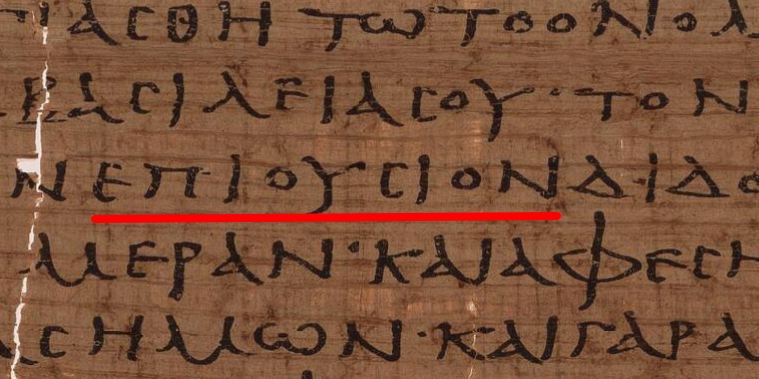the full line being “Give us today our epiousion bread”
Today, most scholars reject the translation of epiousion as meaning daily. The word daily only has a weak connection to any proposed etymologies for epiousion. Moreover, all other instances of “daily” in the English New Testament translate hemera (ἡμέρα, “day”), which does not appear in this usage.[1][2] Because there are several other Greek words based on hemera that mean daily, no reason is apparent to use such an obscure word as epiousion.[4] The daily translation also makes the term redundant, with “this day” already making clear the bread is for the current day.[21]
i don’t think wikipedia mentions this but it has ‘pious’ in the middle



Greek guy here.
Επιούσιος (e-pi-u-si-os) is a composite word (you can make an astronomical number of composite words in Greek if you want to express a new concept, such as tele-phone) and in this sentence it means that which will nourish us for the day. So daily is quite fitting here.
So it’s more like “our day’s worth of bread” than “the bread we eat every day”?
“I’d like my daily ration today”. Sounds bitchy like that.
If the word was missing from the sentence, then it could be translated as “Give us today our bread and forgive our sins…”.
Instead, with the word added, it can be translated as "Give us today the bread we need for the day and forgive our sins… ".
I guess the significance of the word is in not being greedy and asking from God only what you really need instead of what is “owed” to you?
Nourishing makes sense… Particularly in a context similar to edifying.